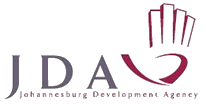JOBURGERS can put away their panic buttons: experts have said that there will not be any resource crises by 2025 or any time close to that. However, this does not mean that people can adopt a devil-may-care attitude and wantonly use up precious supplies of water and energy.
Viable ways of protecting these resources and using them sustainably to lead the city into 2040 came up for discussion at a roundtable hosted by the executive mayor, Parks Tau, at the Metro Centre in Braamfontein on 19 August.
This indaba wrapped up the second themed week, which examined resource sustainability, of the City’s Growth and Development Strategy (GDS) outreach programme. The week consisted of workshops, schools outreach and community engagement programmes to get the people of Joburg talking and thinking about water, waste and energy.
Stakeholders in the waste industry examined ways of implementing integrated waste management planning and measures to get industry, business and the private sector to work together. “The City will need to take leadership, but because of the requirement for continuous improvement, the public needs to be part of the solution,” said Kay Sexwale, a radio presenter who facilitated some of the week’s events.
Such solutions were highlighted during the schools outreach programme on day three, when City officials visited schools in places such as Orange Farm and Alexandra. “The issue of illegal dumping came up heavily in Orange Farm and Alex.” Pests such as rats and mice that were a result of the waste were also pinpointed as key concerns, as was the prevalence of disease and illness.
Recycling through initiatives such as separation at source and at Pikitup’s garden sites was hailed as one of the best ways to tackle waste, although the ultimate goal was to reduce the amount of waste generated.
Panellists at the indaba included academics, managing directors and chief executive officers of businesses. Some warned against placing too much value on waste that could be recycled, saying that it would create a market not conducive to the eradication of waste.
Water
Water management is another key concern going into the future. Seef Rademeyer, the chief engineer in the Department of Water Affairs, put some concerns to rest, saying that a crisis was not imminent, but that residents must nonetheless not waste natural resources.
“South Africa is not going to run out of water, but water security will come at a cost,” Sexwale said. Quality of available water was a big concern that emerged during the week, and contamination of water sources through factors such as acid mine drainage was a worry for residents of various communities. Billing and metering also presented a problem.
Possible solutions that were raised included public-private partnerships to deal with acid mine drainage to turn it into water that could be used, as well as rainwater harvesting at household, business and government levels.
Energy is a key concern for Johannesburg as it is one of the most carbon intense economies in the world for the size of its population. Innovative solutions are therefore a necessity for Joburg’s development path.
Issues which emerged over the course of the week included the fact that illegal electricity connections were rife, especially in informal settlements.
Vandalism and cable theft were an ever-present reality, to which the Gautrain could attest over the past two weeks, and network overloading caused by backyard shacks was also a frequent challenge. Faulty prepaid meters and issues of affordability provided further difficulties for the City to consider.
“Getting the basics right is imperative,” Sexwale said. “Smart cities should be simple, efficient and interactive.” The focus, therefore, needed to be on being energy efficient. The City retrofitting all of its council buildings with measures such as energy-saving light bulbs was just one example and one step in moving towards a more efficient economy.
Ways of achieving this goal include improving infrastructure and changing behaviour. This, in fact, is as the crux of the matter for all three of the sectors. The biggest challenges across the board are the lack of services, as well as old and failing infrastructure. Panellists and residents alike mentioned a need for sound infrastructure, and the necessity of carrying out routine maintenance on all infrastructure, which in the long term would actually reduce costs for the City.
Above all, though, there is the need for the City and its residents to join hands and fight the problems together. There is increasing evidence of the private sector tackling these problems head-on and implementing solutions at a grassroots level.
“The consciousness of people is there; we just need to capitalise on it,” Sexwale said.
The third GDS themed week will focus on health and poverty, and will run from 22 to 26 August. To find out more about events and activities taking place during the week, as well as more about the GDS, you can go to the Facebook page or follow the GDS2040 on Twitter, @GDS2040. It also has a website.

